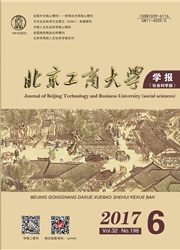

 中文摘要:
中文摘要:
从公允价值选择的发展过程看,“三大假说”是解释公允价值选择的理论基础,而“机会主义观”和“效率观”是公允价值选择的理论发展。文章从实证会计理论基础——“三大假说”“效率观”和“机会主义观”出发,对国内外关于公允价值选择影响因素的相关研究进行述评。从文献回顾的过程中,可以看出,“三大假说”是“机会主义观”的具体体现,“机会主义观”和“效率观”共同影响着公允价值的选择,并且企业业绩、管理层薪酬、债务合同、企业规模、信息不对称、信息质量和估值成本等都是影响企业选择公允价值的因素。最后,结合当前国内外的研究现状,对公允价值未来研究方向提出一些展望。
 英文摘要:
英文摘要:
Seen from the developing process of fair value option, "three hypotheses" is the theoretical basis for the interpretation of fair value option, while both opportunism view and efficiency view are the results of theory development in fair value option. This article mainly reviews the related research on factors influencing fair value option based on empirical accounting theory--"three hypothesis", "opportunism view" and "efficiency view". From the literature review, it can be concluded that opportunism is the concrete manifestation of "three hypotheses" and influences fair value option in conjunction with efficiency view. Furthermore, it concludes that corporate performance, executive compensation, debt contracts, company scale, information asymmetry, information quality and valuation cost are the factors that influence fair value option. Finally, the prospects are put forward for future research based on the status of foreign and domestic research.
 同期刊论文项目
同期刊论文项目
 同项目期刊论文
同项目期刊论文
 期刊信息
期刊信息
